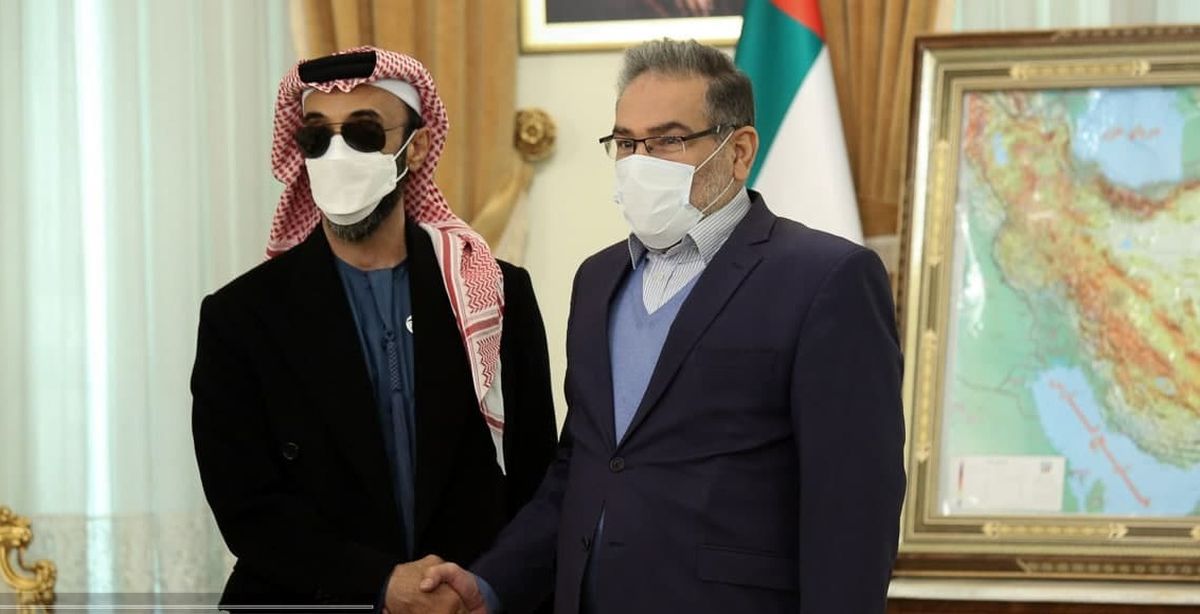During the visit, Tahnoon bin Zayed met with the Iranian President, Seyyed Ebrahim Raisi and Secretary of the Supreme National Security Council Ali Shamkhani, and announced that Iran is a large and powerful country in the region with a unique geopolitical position, therefore, the development of warm and fraternal relations between Abu Dhabi and Tehran is a priority of foreign policies of his country.
Such an approach and comment led to the announcement of positive reciprocal positions by the officials of the Islamic Republic of Iran. Criticizing the behavior of the great powers in the region, the president spoke about the common goals and security of Muslim countries in the region. Admiral Shamkhani, while mentioning the potential for cooperation between the neighbors in the region, considered the visit of his Emirati counterpart to Iran as the beginning of a new round of bilateral relations between the two countries.
Examining the recent approach of the UAE, it seems that the country has pursued a kind of pragmatic foreign policy that is identified with economic goals and with the approach of de-escalating tensions with its neighbors. With the withdrawal from the war in Yemen, the improvement of relations with Turkey, the end of sanctions against Qatar, as well as the end of the intervention in Libya, this time it has put de-escalation of tensions with its big neighbor, that is to say Iran, on the agenda. Despite the optimism created, at the same time as the security officials of the two countries meet, there will be complex and difficult obstacles and issues on the way of establishing an effective relationship between the Islamic Republic of Iran and the United Arab Emirates.
The Abraham Accords and the relations established between Abu Dhabi and Tel Aviv and its regional consequences can be considered as one of the obstacles to strengthening cooperation between Iran and the UAE.
On the other hand, the security arrangements of the region can be mentioned as the most important factor shaping the relations between Tehran and Abu Dhabi and even other countries in the region. In addition to Abu Dhabi waiting for determination of the outcome of Iran nuclear talks, the gradual withdrawal of the United States from the region and the reduction of US defense systems in the Persian Gulf states have reduced the decision-making options for the UAE and even Saudi Arabia. Developments in the security structure and the weakening of the US security umbrella in the region have ended the game of the time of Trump’s presidency against Iran.
At present, Biden’s Democratic administration, simultaneously with pursuing nuclear talks with the Islamic Republic of Iran, has apparently replaced pressure and maximum confrontation with de-escalation. As the policy of tough action against Iran gradually diminishes, it is assumed that the UAE, which was a supporter of Trump’s tough policies against Iran during his presidency, will no longer be inclined to confront its neighbor. It is also unlikely that Abu Dhabi will want to take part in Tel Aviv’s aggressive stance and policies against Tehran without taking advantage of the US security umbrella.
The UAE needs regional stability and security to develop and expand its economic diversity, as well as reduce tensions with its effective and powerful neighbor.
It has shown that it will not sacrifice its trade and economic security even at the height of tensions with Iran. In 2019, in the wake of US and regional allies’ efforts to pose a security challenge to Iran, the Emirati ship was targeted, prompting Abu Dhabi and Tehran to sign a memorandum of understanding to strengthen border cooperation.
Abu Dhabi seems to have come to the conclusion that increasing the level of confrontation, joining costly competitions and shaping the erosive balances in the region cannot be pursued without damaging the country’s trade identity.
As the UAE security adviser has pointed out, Iran is an important and great regional power, and the inequality of power components between Abu Dhabi and Tehran will cause that country to either take steps to reduce tensions or to create a balancing factor before Iran such as building alliances with other countries in the region. An alliance that, as was mentioned, would have very little chance for being effective without the effective presence of the United States and its security umbrella.










0 Comments